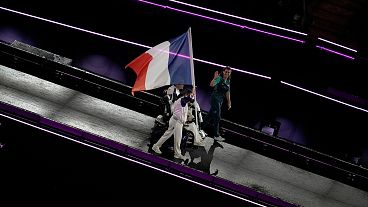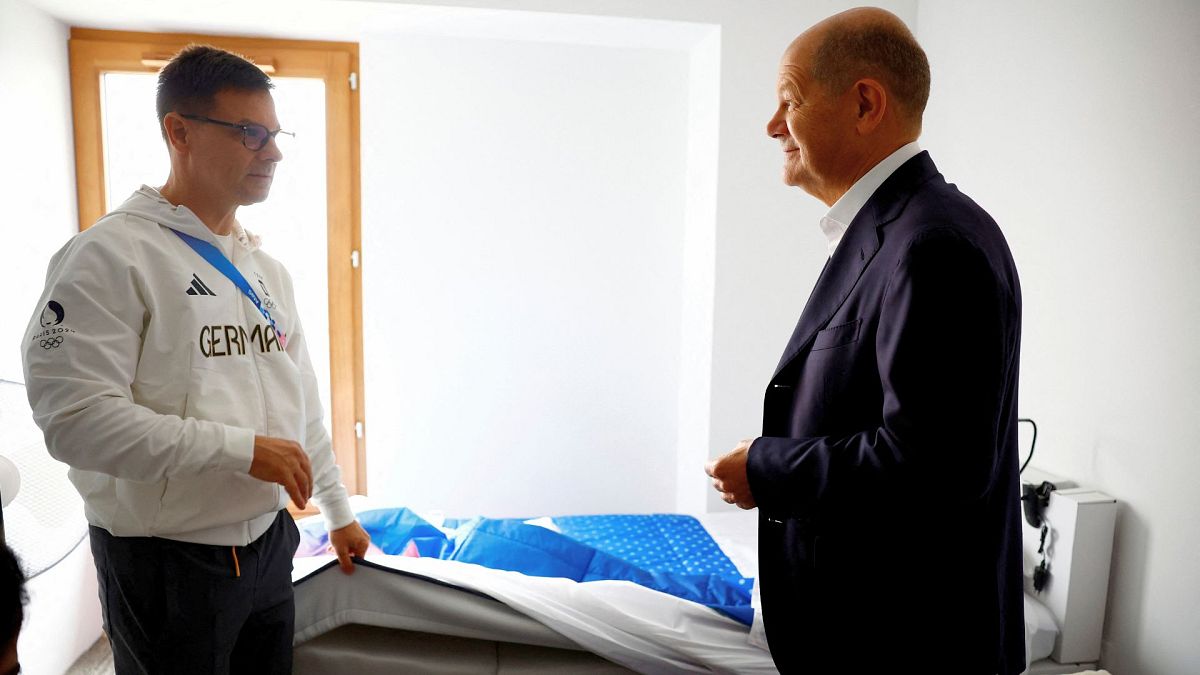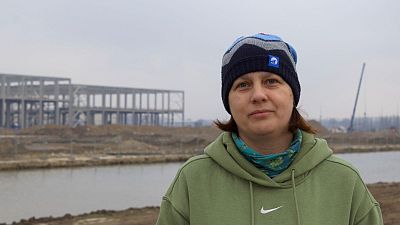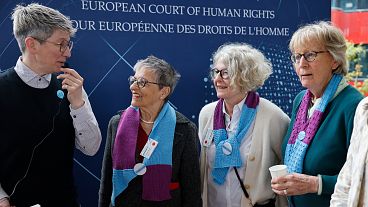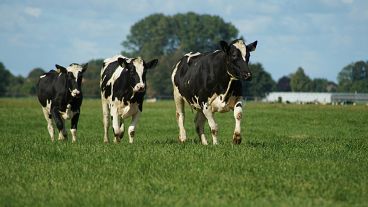One athlete said her 'back is about to break off' after sleeping on the eco-friendly Olympic Village bed.
The thought of cardboard beds gave many athletes sleepless nights in the lead up to Paris 2024.
Now competitors are settled in the Olympic Village, the eco-friendly sleeping arrangements continue to create a stir.
Some teams have taken matters into their own hands by upgrading their beds or even refusing to sleep in the Village.
Will this reverse the good intentions of making this the most sustainable Games yet?
Why are cardboard beds being used in the Olympic Village?
When cardboard beds made their Olympic debut at the COVID-era 2021 Tokyo Games, rumours swirled that they were designed to prevent intimacy among athletes.
In reality, the goal was not to create so-called ‘anti-sex’ beds, but to boost the Games’ green credentials.
This year’s extendable cardboard bed frames are made in France and will be fully recycled after the event, according to the organisers.
They can also be transported unassembled, taking up little room and therefore reducing emissions.
"Their use helps us reach our goals to divide total CO2 emissions by half compared to the previous Games," a Paris 2024 spokesperson tells Euronews Green.
As to their comfort credentials, they add that "a key benefit of Airweave mattresses is that they are customisable to an individual’s morphology and so can meet specific comfort and preparation needs."
The beds are topped with modular mattresses, which can be adapted to different firmness levels. Partly woven from recycled fishing lines, these, too, are reusable and recyclable.
After the event, the mattresses will be donated to the French Army and various other organisations including schools.
The eco-friendly decor doesn’t stop there: athletes’ rooms also include tables made from recycled badminton shuttlecocks, chairs that were formerly bottle caps and pouffes made from parachute canvas.
It’s all part of Paris’s goal to host the ‘greenest ever Games’, which has also seen the city transform existing buildings into sporting venues and attempt to clean up the Seine river for swimming events.
‘My back is about to fall off’: Greenlash against eco-friendly Olympic beds
Athletes were quick to debunk the anti-sex bed claims, with Northern Irish gymnast Rhys McClenaghan posting a video of himself doing forward rolls and handstands on the frame.
But whether they offer a sound night’s sleep is up for debate.
“My back is about to fall off”, one athlete complains in a TikTok video, which Australian water poloist Tilly Kearns posted with the caption: “Already had a massage to undo the damage”. The beds are “rock hard” even on the soft side of the mattress, she added.
Boxer Tina Rahimi, a fellow Australian, also posted a video of her teammate proclaiming the “beds are shite” first thing in the morning.
While not resounding praise, Filipino-American gymnast Aleah Finnegan had a slightly brighter take, saying the bed is “not super bad” in a video with the caption: “Definitely not the finest mattress ever but it will do”.
US slalom canoeist Evy Leibfarth was more positive, saying the beds are “definitely mostly cardboard but… not super hard,” adding that the frames “minimise environmental impact, which is slay”.
"On the few athletes who expressed concerns about quality of the beds... it is our priority to meet the performance needs of athletes from around the world," the spokesperson for the Games adds.
"The quality of Airweave mattresses is recognised and approved by the various National Olympic and Paralympic Committees, and already proved its comfort to athletes during the Tokyo Games."
Are Olympic green measures counterproductive?
With teams travelling from around the world for a shot at an Olympic gold medal, comfort has taken precedence over the environment.
Following a poor night’s sleep, Kearns and her teammates took advantage of next day delivery services to bulk order mattress toppers and extra pillows.
Canadian springboard diver Caeli McKay also posted that her team manager bought additional pillows and mattress toppers, along with Swedish swimmer Sarah Sjostrom and US gymnast coach Cecile Landi.
To make sleeping more comfortable, the US team has also employed a cooling solution that pumps cool air beneath the mattress.
It’s another marker of how Olympic Village green initiatives have failed. After initially designing rooms without air-conditioning, organisers were forced to u-turn in the face of 35C temperatures.
Countries have now been allowed to hire portable air-con units at their own expense, with more than 2,500 orders placed at the start of July.
Faced with the unappealing prospect of hot rooms and cardboard beds, some teams decided well in advance to stay off site, including the US basketball teams, US women’s tennis team, and Serbian star tennis player Novak Djokovic.
High-profile basketball players have instead forked out $15 million (€13.8m) to book an entire luxury hotel in the centre of Paris.



